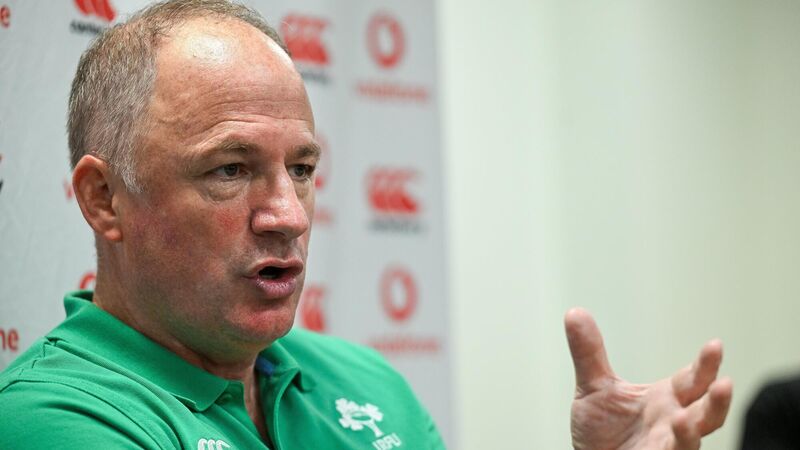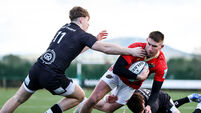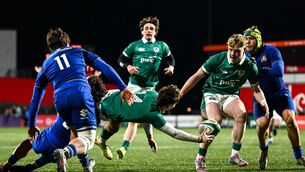Pack of Ireland Lions masks problems, but Humphreys eyes better balance

IRFU performance director David Humphreys during an Ireland rugby media conference at the IRFU High Performance Centre at the Sport Ireland Campus in Dublin. Picture: Brendan Moran/Sportsfile
A British & Irish Lions touring party with the largest Irish contingent of players and coaches in its 137-year history and Leinster crowned URC champions suggests rugby in Ireland is rude health. Yet IRFU Performance Director David Humphreys is uncomfortable with that overview.
There will be 11 Irishmen wearing the Lions’ red jersey in their opening tour match in Australia on Saturday morning, when they face the Western Force in Perth, part of a record group within Andy Farrell’s 38-man squad of 16 players more regularly seen in green.












